Chiggers are microscopic arthropods that may inflict severe pain through their bites. These insects go by various other names in addition to the term “trombiculid mites,” which scientists use. Other names for them include “mower’s mites,” “red bugs,” “harvest mites,” “harvest bugs,” “harvest lice,” and “harvest lice. We will give a thorough review of what chiggers are, the symptoms of chigger bites, and how to avoid, treat, and manage these bites in this article, “Chiggers 101: Symptoms, Prevention, Treatment, and Control of Chigger Bites.” The precautions readers can take to shield themselves from the discomfort brought on by chigger bites will be clearer to them after reading this article. This article’s main focus is on the symptoms, prevention, treatment, and control of chigger bites.
What are Symptoms, Prevention, Treatment, and Control of Chigger Bites? Discover the ins and outs of dealing with chigger bites, which can manifest as hardened skin, welts, and intense itching. Explore effective remedies such as over-the-counter medications, ice, and cool water to alleviate discomfort. Learn proactive measures like using DEET or permethrin spray for bite prevention. Delve into the intriguing world of chiggers, the juvenile stage of mites belonging to the Trombiculidae family.
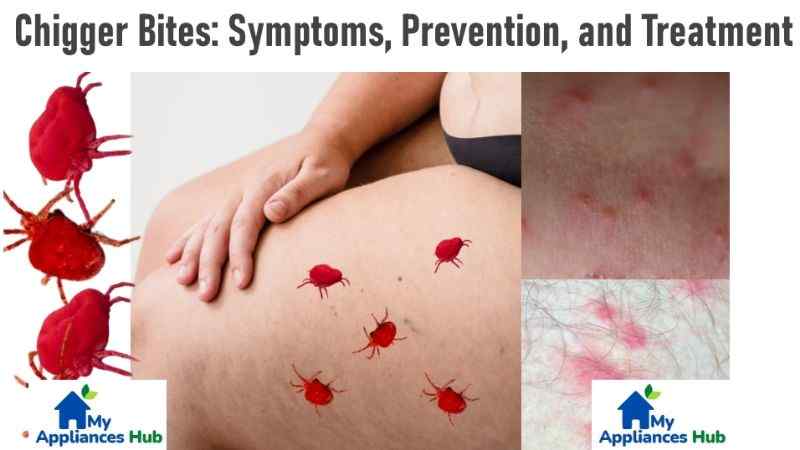
Related Articles
Top Recommended Products to Treat and Control Chigger Bites
Chiggers (Redbugs) – Chigg-Away Anesthetic

Chigg-Stop Relieves, Itching, and Repels Chiggers (Pack of 2)
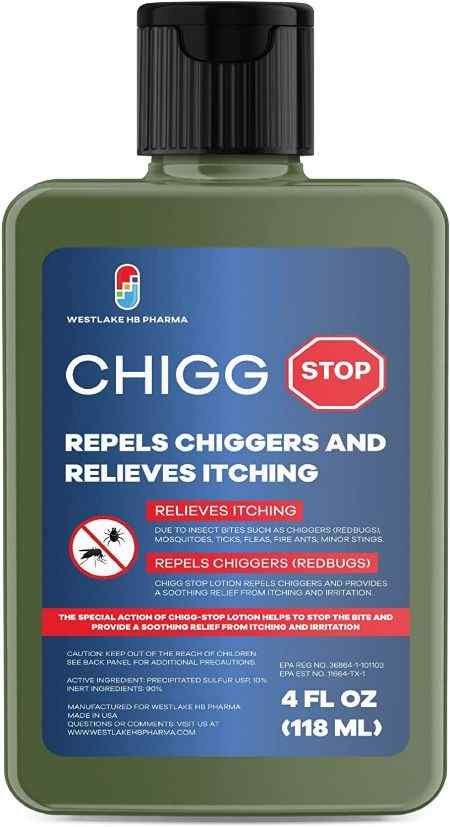
Bug Bite Relief Stickers. Natural Patches for Itchy Chiggers – Fast and Soothing (36 Stickers)
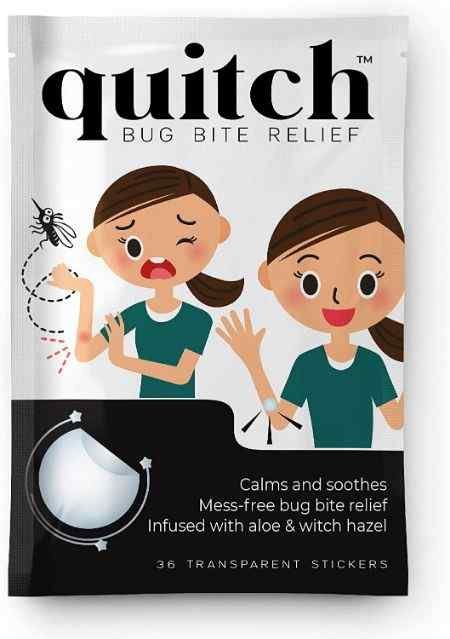
Bite Relief and Chemical-Free Treatment – Reduce Pain & Itching,
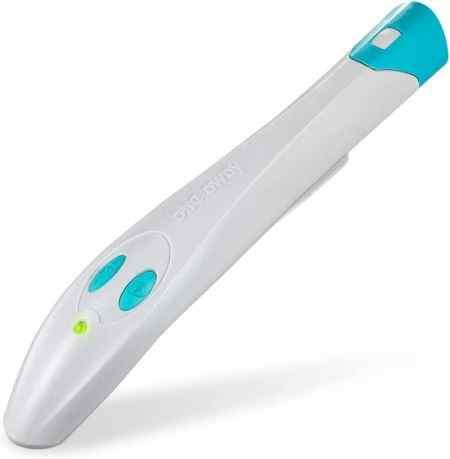
InsectGuard Permethrin Treated Gaiters & Sleeves For Chiggers

BUG BITE Suction Tool – Poison Remover (Natural Insect Bite Relief)
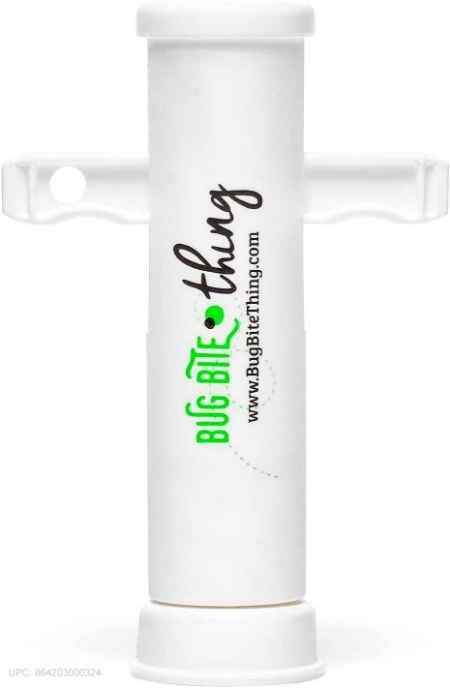
What Are Chiggers
Chiggers are tiny, crimson-orange mites that live in fields and forests. They also go by the names “red bugs” or “harvest mites,” and they become active when it is humid and between 77 and 86 degrees Fahrenheit.
Chiggers are minuscule parasites that feed on both human and animal blood. They are attracted to the aroma of carbon dioxide exhaled, and they bite and adhere to the skin using their pointed mouthparts. Once connected, they inject enzymes that break down the tissue around them, forming a stylostome that serves as a feeding conduit for the dissolved tissue.
Chigger bites can trigger allergic reactions as well as itchy, rosy lumps on the skin. They tend to live in grassy or forested settings and are most active during the summer. Wear long sleeves and pants, use insect repellent on the skin and clothing, and avoid walking barefoot in regions where chiggers are present to prevent getting bitten.
What do Chiggers Look Like
Chiggers are tiny, ruddy-orange arthropods with eight legs, and their front legs have features resembling claws. They frequently inhabit woodland or grassy environments and are drawn to the aroma of carbon dioxide. Chigger bites can result in tiny, red, itchy lumps on the skin as well as occasionally allergic reactions.
Where Do Chiggers Live?
Chiggers are tiny arachnids that can be found in many different types of ecosystems all over the world. They are often referred to as red mites or harvest mites. They may easily find hosts to feed on in grassy, brushy, or woodland settings, which are where they are most frequently found. Chiggers require moisture to survive, hence they are frequently seen in damp environments.
Chiggers are typically found in the southeastern states of the United States, especially in regions with wet, humid weather. They are also spread throughout the rest of the nation, particularly in the Midwest and Southwest. Numerous other regions of the world, including Asia, Europe, and South America, are also home to chiggers.
Because tall grass, weeds, and other plants give chiggers cover and access to hosts, these regions are frequently where they are located. They can also be found in places where there is leaf litter or other debris since it might offer them more moisture and cover. When temperatures rise above 70 degrees Fahrenheit throughout the year, chigger activity is at its peak.
What Do Chiggers Bites Look Like
Chiggers are tiny, crimson mites that can irritate the skin by biting. The bites are frequently discovered in the creases of the skin or on body parts like the waistline or ankles where clothes fit tightly. The bites may show tiny, itchy red pimples on the skin. The bites may occasionally swell up or blister. The itch could be severe and continue for several days.
It is crucial to fight the impulse to scratch the bites and to use an over-the-counter anti-itch cream or lotion to lessen the itching. Scratching the bites can cause an infection. It is crucial to speak with a healthcare professional if the bites are severe or if you experience a reaction to the bites.
How Do Chiggers Transmit Diseases to Humans
Humans are not exposed to any infections from chiggers. Chiggers are little arachnids that feed on both human and animal blood. Their saliva, which includes enzymes that aid in dissolving skin cells, is injected into the skin in small amounts. The liquified tissue is then consumed by the chigger.
Chiggers don’t directly spread diseases, but their bites can itch and feel uncomfortable. Chigger bites commonly show up as tiny red lumps on the skin and can be uncomfortable and itchy. A disorder known as trombiculiasis, which is marked by a rash, fever, and muscle aches, can occasionally be brought on by chigger bites.
If you think you may have been bitten by chiggers, wash the affected area with soap and water to remove any remaining mites and reduce the risk of infection. You can also take an antihistamine or use an over-the-counter anti-itch cream to relieve the symptoms of chigger bites. If your symptoms are severe or if your immune system is weak, you must consult a doctor right away.
What Are the Symptoms of Chigger Bites?
Chigger bites often take the form of tiny, painful, and reddish lumps on the skin. The bites can come in groups and are frequently found on the legs, ankles, and waist, which are body parts that are exposed to vegetation. The arms, neck, and face are just a few other body parts where chigger bites can happen. Aside from the red bumps, chigger bites can also result in the following symptoms:
- Swelling: Chigger bites can make the skin swell, especially if many mites have attacked you at once.
- Itching: Chigger bites might leave you with a strong want to scratch. Scratching the bites increases the risk of infection and damages the skin.
- Pain: Chigger bites can be uncomfortable, especially if there are many mites on you.
- Rash: Around the bite site, some people get a rash that may be red and elevated.
- Fever: Chigger bites can result in a low-grade fever, along with body pains and weariness.
Developing a secondary infection is possible if you scratch the bites excessively. The signs of a secondary infection can include warmth, pus, swelling, and redness. It’s crucial to see a doctor if your symptoms are severe or if you have a compromised immune system.
What Does a Chigger Bite Allergy Look Like?
Symptoms of an allergic reaction to chigger bites might vary, but some typical ones are as follows:
- Itching and redness of the skin, which may also become puffy and irritated, are present at the bite site.
- Hives are swollen, painful, red bumps on the skin that are raised and raised.
- Blisters at the biting site or on the skin.
- In severe circumstances, an allergic reaction might result in breathing problems, tightness in the chest, or anaphylaxis, a potentially fatal emergency.
- An allergic reaction to chigger bites might occasionally take time to manifest itself.
If you believe you are having a severe allergic reaction to chigger bites, you should get medical help right away because some symptoms could be fatal if left untreated. These include having problems breathing, feeling faint or disoriented, or having tightness in the chest or throat.
Chigger Bites Treatment
If you do end up with chigger bites, there are several available treatments to aid with the irritation and discomfort. A few popular forms of treatment are listed below:
- Anti-itch creams available over the counter: Some many lotions and ointments can help lessen itch and irritation. Look for products that include pramoxine, calamine, or hydrocortisone among other chemicals.
- Calamine lotion is a typical remedy for bug bites of all kinds, including chigger bites. It can assist in reducing scratching and drying up any blisters that may have developed.
- Hydrocortisone cream: A mild steroid cream that can help lessen itching and inflammation is hydrocortisone cream.
- Oral antihistamines: By preventing the production of histamine, a substance that produces these symptoms, antihistamines can help lessen itching and swelling.
- Applying a cold compress to the affected region will help lessen itchiness and swelling.
- When to need medical help: Chigger bites may typically be treated with over-the-counter drugs and are not typically dangerous. However, get medical help right away if you have an allergic response or if the bites get infected.
Everyone responds to chigger bites differently, so you might need to try a few different treatments before deciding which one is best for you.
Prevention of Chigger Bites
The best method to handle chigger bites, which may be excruciatingly irritating and itchy, is to avoid getting them in the first place. Here are some recommendations for avoiding chigger bites:
- Avoid chigger-infested locations: Wooded, brushy, and grassy regions are where chiggers are most frequently seen. Avoid these kinds of regions if you intend to spend time outside, or at the very least, stick to trails and paths that have been maintained.
- If you are going to be spending time in an area where chiggers are likely to be present, dress protectively by wearing long sleeves and slacks. Wearing closed-toe shoes and tucking your slacks into your socks can also help prevent chigger bites.
- Utilize insect repellents: Several repellents are available that can assist in preventing the presence of chiggers and other insects. Use an insect repellent that contains DEET, permethrin, or picaridin, and be sure to cover all exposed skin with it.
- Keep your lawns and outside spaces in good condition: In regions with weeds, long grass, and leaf litter, chiggers thrive. Mow your lawn frequently, get rid of the bush, and clean up any leaf litter if you don’t want chiggers to establish a home in your yard.
By using these suggestions, you can lessen your chance of acquiring chigger bites and enjoy the outdoors without worrying about itching, or flaming bites.
How to Control of Chiggers
The easiest method to deal with chiggers is to avoid getting bitten, but there are things you can do to keep them under control in your yard and around your house. Here are some recommendations for chigger prevention:
- Frequent yard mowing: Chiggers love tall grass, so keeping your lawn maintained will help cut down on their population.
- Brush and tall grass removal: In addition to mowing your lawn, you should remove any brush, weeds, and other tall plants that could serve as a chigger’s habitat.
- Using pesticides: You might need to use pesticides to control chiggers if you’re dealing with a severe infestation. Use only pesticides that are specifically labeled for use against chiggers, and pay close attention to the manufacturer’s instructions.
- Chiggers can also be found in leaf litter and other debris, so make sure to clear your yard of any leaf litter.
- Chiggers can also bite animals, so be sure to inspect your pets for bites and treat them as necessary.
- Chiggers cannot survive indoors, yet they can get inside homes on people’s clothing, shoes, or animals. Chiggers are less likely to enter your home if you take off your shoes before entering, vacuum frequently, and keep your dogs clean and well-groomed.
You can keep chiggers under control and enjoy your yard without having to worry about them by using the advice in this article.
How to Get Rid of Chiggers
You can take several actions to get rid of chiggers and stop them from biting you:
- Trim the grass and weeds on your lawn to lessen the habitat for chiggers, which prefer tall grass and weeds.
- Wear protective clothing: To prevent bites to your skin when working or spending time in areas where chiggers may be prevalent, wear long pants and long-sleeved shirts.
- Use insect repellent: To help against chigger bites, spray your skin and clothing with an insect repellent containing DEET or picaridin.
- Chiggers are frequently found in regions with long grass, weeds, and other vegetation, so stay away from those locations. When visiting these regions, stay away from them or use caution.
- Check your pets: Chiggers can bite animals as well, so be sure to check them for bites and protect them by using a flea and tick preventative.
- Treat your yard: You might want to think about applying a pesticide to kill the mites if you have a serious chigger problem there. To help keep chiggers away, apply this to your grass and the area around your house.
- Keep your home tidy: Chiggers can enter your home on your clothing or shoes, so keep it tidy and vacuum frequently to help lower the likelihood of an infestation.
Home Remedies for Chigger Bites
There are a few natural cures you can try at home if you think you’ve been bitten by chiggers to assist you to stop itching and suffering.
- Make a paste of baking soda. Apply a paste you’ve made by combining baking soda and water to the afflicted region. Inflammation and irritation may be lessened as a result.
- Put apple cider vinegar to use. Using a cotton ball and a small amount of apple cider vinegar, apply the solution to the bites. Inflammation and irritation may be lessened as a result.
- Implement aloe vera gel. Aloe vera gel can help hydrate and calm the skin, which will lessen itchiness and pain.
- Take a bath with oatmeal. Warm bathed with a cup of oatmeal added, then soaked for 15 to 20 minutes. The oatmeal might relieve irritation and discomfort by soothing and moisturizing the skin.
- Apply an ice pack to the bites. An ice pack or bag of frozen veggies can be used as a cold compress to ease swelling and itchiness.
It’s crucial to remember that while these treatments may offer short-term relief, it is always recommended to speak with a healthcare provider for an accurate diagnosis and course of action.
Chiggers Frequently Ask Questions (FAQs)
Are Chiggers Contagious
Chiggers do not spread diseases. They are tiny arthropods that feed on both human and animal skin cells and do not spread illness. They can be found in grassy, brushy, and forested places and can itch and irritate the skin when they attach, but they cannot be transferred from one person to another.
What causes chigger bites?
The chigger mite’s larvae are responsible for chigger bites. Chiggers are tiny, red, arachnid insects that live in thick grass, bushes, and forests. The summer and fall are when they are most active. Chiggers can cling to clothing or skin when a person walks through an area where they are present, then bite the victim to ingest blood. The bites may produce an allergic reaction in rare situations and can be highly irritating and uncomfortable.
Do chiggers lay eggs in your skin?
Chiggers are small arthropods that bite and are sometimes known as red bugs or harvest mites. They live in grassy, tangled, and wooded regions and are not contagious. They consume skin cells before falling off within a few hours or days with little lasting harm. However, their bites can itch and result in welts that are red and inflamed.
How do I know if I have chiggers in my bed?
If you wake up itching terribly and have a rash on your skin, you probably have bed bugs. On your skin, you might also see little red lumps or bumps that have a tiny red halo around them. You can check your sheets, pillows, and mattress for any indications of the mites, such as tiny, red specks or clusters of eggs if you believe you have chiggers in your bed.
Can chiggers infest your house?
Chiggers can be found in many different outdoor settings, although they rarely infest homes. Chiggers can travel inside the house on clothing or other items, but they don’t frequently establish a population there.
Are chiggers active at night?
The daytime is usually when chiggers are most active, especially in warm, muggy weather. They may bite at any time of day, though, and they are sometimes active at night.
How do I get rid of chiggers in my bed?
Chiggers in your bed can be removed by:
- Your mattress cover, pillows, and sheets should be washed in hot water and dried on the maximum heat setting.
- Pay close attention to the seams and crevices as you thoroughly vacuum your mattress and box spring.
- To avoid further infestations, think about using a mattress protector or encasement.
- To keep chiggers out of your bed, use a natural repellent like cedar oil.
How long do chiggers live on blankets?
Chiggers can survive for a short time, usually a few days to a week, on blankets. However, they rarely build their population on blankets or other utensils.
Can chiggers crawl up your body?
Chiggers can indeed climb up your body. They can crawl undergarments to access warm, moist areas of the skin because they are drawn to them.
Do chiggers only bite at night?
Although they are normally most active during the day, chiggers can bite at any hour of the day.
What happens if chiggers go untreated?
If chigger bites are left unattended, they may itch and hurt for a few days to a week. Rarely, if the skin is torn or persistent scratching causes the bites to get infected.
What kills chiggers on your body?
Use a shower or bath to remove chiggers from your body to destroy them. Chiggers can be killed instantly on contact by applying insect repellent with DEET or other active chemicals.
Will a shower wash off chiggers?
Yes, taking a shower can help you remove ticks from your body. To get rid of any chiggers that may still be present and help prevent additional bites, it is crucial to thoroughly wash the affected area with soap and water. To avoid re-exposure, it is also a good idea to wash any clothing or other items that may have come into touch with chiggers.
How do chiggers bite?
Chiggers sting by injecting their saliva, which includes enzymes that break down the host’s skin cells, into the host’s skin. The liquefied tissue is then consumed by the chiggers. This procedure may result in a rash and excruciating irritation.
How do you prevent chigger bites?
You can avoid getting chigger bites by:
- When strolling through places with grass or trees, don long sleeves, and pants.
- Utilize DEET-containing insect repellant.
- After being in a place where chiggers may be prevalent, take a shower and wash your clothes as soon as you can.
- On grassy regions, avoid sitting or lying down.
Can chiggers spread diseases?
Humans are not exposed to any infections by chiggers. If the bites are scratched excessively, they could turn infected. To avoid infection, it’s crucial to keep the bites clean and refrain from scratching them.
How can you tell chigger bites from bed bug bites?
It might be challenging to tell the difference between bites from bed bugs and chiggers. Both kinds of bites are tiny, crimson, and occasionally irritating. However, bed bug bites are often more dispersed, whereas chigger bites frequently occur in clusters or groups. Chigger bites may also resemble little red pimples with a blister or halo around them and are more likely to be red and inflammatory than other bites.
Can chiggers live in your clothes?
If you wear clothing after walking through an area where chiggers are present, chiggers may live there. When you put on clothing, chiggers may stick to it and then go on to your skin.
Do chiggers go away on their own?
Chiggers do not naturally disappear. They need to be eliminated by either applying a chemical treatment or carefully washing the afflicted area with soap and water.
Do chiggers lay eggs in your skin?
Your skin is not where chiggers lay their eggs. Since they are ectoparasites, they exist outside of their host (in this case, human skin). They do not lay eggs within the body or dig tunnels into the skin.
Do chiggers bury themselves in your skin?
Chiggers don’t burrow into your skin. They use their mouthparts to connect to your skin, and then they inject saliva, which includes digestive enzymes that aid in feeding on your skin cells.
Does scratching chiggers make it worse?
Chigger bites can become infected and become worse if they are scratched. It’s crucial to refrain from scratching the bites and use a product like hydrocortisone cream to lessen the itching.
What smell do chiggers hate?
There is no particular smell that chiggers dislike; instead, they are drawn to the carbon dioxide, heat, and wetness that the human body produces. However, some individuals assert that specific odors, such as the smell of bleach or vinegar, may assist with chigger repulsion.
Can a lot of chigger bites make you sick?
Many chigger bites can be excruciatingly painful and may result in a rash or other skin irritants, but they are typically not dangerous and won’t get you sick.
What repels chiggers?
Wearing long sleeves and pants, using insect repellents containing DEET or picaridin, and avoiding strolling through tall grass and other places where chiggers may be prevalent are some of the ways to keep chiggers away.
Why do I keep getting chigger bites?
If you spend time in places where chiggers are common, such as long grass or wooded areas, you might be receiving chigger bites. Chigger bites can be avoided by using insect repellent and wearing protective clothing. To assist get rid of any chiggers that may be attached to your clothing or skin, it is also crucial to take a shower and wash your clothes after being in an area where chiggers may be prevalent.
Conclusion: Symptoms, Prevention, Treatment, and Control of Chigger Bites
A thorough review of chiggers, including their symptoms, prevention, treatment, and bite control, has been given in the article. When spending time in locations where chiggers are known to be abundant, it is vital to take steps to prevent chigger bites, such as wearing long sleeves and pants and using insect repellent. To lessen itching and avoid infection, it’s crucial to clean and treat the bite site correctly if you do have chigger bites. You may reduce your risk of being bitten and take advantage of the great outdoors by being aware of the basics of chiggers and knowing how to protect yourself.